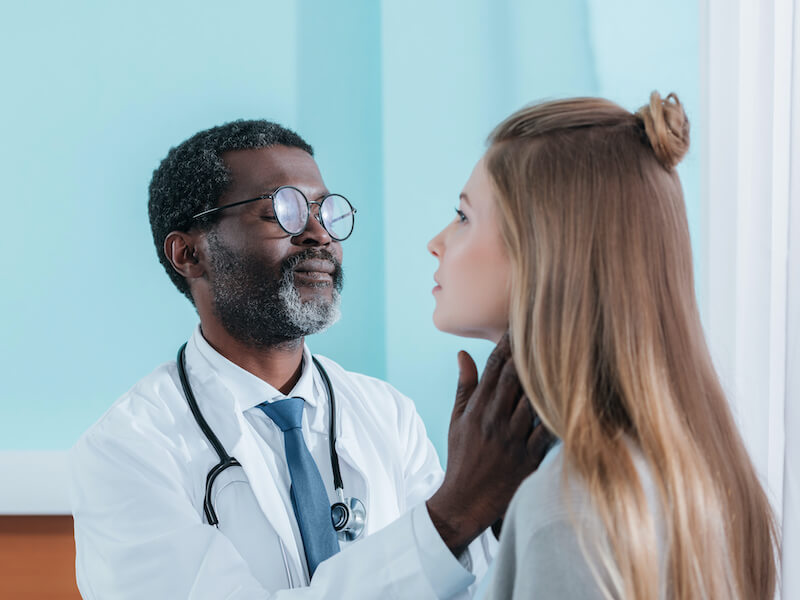
Each year over 50,000 people are diagnosed with oral cancer (oropharyngeal cancer). And that’s unfortunate because oral cancers can have a relatively high mortality rate. Most of these people are over 60 years old, but not all.
The mortality rate is not caused by oral cancer being particularly aggressive. Alternatively, these cancers are often challenging to treat because they’re not evident. Oral cancer, like most cancers, becomes more difficult to treat when it reaches advanced stages and this is when it’s often identified.
Oral cancer is usually very treatable when discovered early. Keeping an eye out for early indications of oral cancer is one of the best things you can do.
What are some early signs of oral cancer?
Scheduling a hearing assessment with us is the best way to get early detection. A range of types of cancer can be detected by our screening process.
Between visits, there are some signs to watch for. Some of the most common early signs of oral cancer include the following:
- Trouble moving your jaw, including when you’re chewing or speaking.
- Numbness, tingling, or loss of sensation in the lower lip.
- Trouble swallowing.
- Patches of red or white tissues in the mouth. The white tissue is known as leukoplakia and the red tissue is called erythroplakia. Usually, these patches are nothing to be concerned about, but they may be an early sign of possible cancer in some instances.
- Tooth loss. You should consult a doctor if you are noticing loose teeth which are not a result of hygiene or dental concerns (check with your dentist).
You should contact your ear nose and throat doctor if you are noticing any of these symptoms.
When you go to an oral cancer screening, what happens?
We will thoroughly examine your mouth and throat and identify any red or white patches. That’s because this red or white tissue can become lesions, and lesions can ultimately become cancerous.
In most situations, you will only need a visual examination. But if we find some tissue that is suspect, we might need to do a biopsy.
Avoiding cancer
Here are some situations that will make cancer more likely:
- Tobacco use. A wide range of cancers, including oral cancer, will be more likely if you use tobacco products.
- Poor nutrition. Your risk of cancer decreases if you eat a healthy diet of fruits and vegetables, according to some evidence.
- Family history. If you have a family history of oral cancers, your risks are going to be elevated.
- Excessive drinking. Alcohol has been associated with cancer. Limiting your alcohol consumption (particularly when that drinking is coupled with tobacco use) can help reduced your risks.
Limit your sun exposure: Your risk of lip and skin cancer will go up with extended exposure to the sun.
Get routine screenings
Scheduling an appointment with us is the best way you can reduce your risk of oral cancer. With routine screenings, the chances are better that we will be able to detect any possible cancers early, before they spread or become too advanced. This can dramatically better your prognosis.